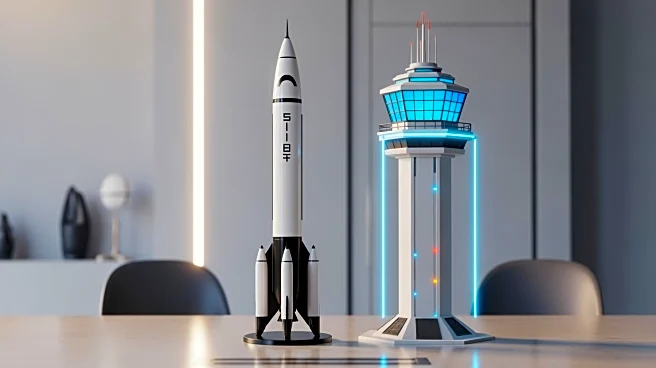What's Happening?
Sean Duffy, the acting NASA administrator, has suggested that NASA could benefit from being part of the Cabinet, potentially within the Department of Transportation. This proposal comes amid ongoing discussions about the future leadership of NASA, following
Duffy's appointment by President Trump after the withdrawal of Jared Isaacman's nomination. Duffy has not expressed a desire to remain in the NASA administrator role permanently, according to a NASA spokeswoman. The idea of integrating NASA into the Department of Transportation reflects Duffy's interest in expanding his influence within the government.
Why It's Important?
Duffy's proposal to integrate NASA into the Department of Transportation could significantly alter the agency's structure and operations. Such a move might streamline decision-making processes and enhance coordination between transportation and space exploration initiatives. However, it also raises concerns about the potential dilution of NASA's focus on scientific research and exploration. The proposal could impact funding allocations, strategic priorities, and the agency's ability to innovate independently. Stakeholders in the space industry and government will need to consider the implications of such a structural change.
What's Next?
The proposal may lead to further discussions and evaluations of NASA's organizational structure and its alignment with broader government objectives. Political leaders and industry experts will likely weigh the benefits and drawbacks of integrating NASA into the Department of Transportation. The decision could influence future policy directions and funding priorities for space exploration. As the debate unfolds, stakeholders will need to assess the potential impact on NASA's mission and its role in advancing U.S. interests in space.
Beyond the Headlines
The suggestion to integrate NASA into the Department of Transportation highlights broader questions about the governance of space exploration and the role of government agencies in scientific innovation. Ethical considerations regarding the balance between administrative efficiency and scientific autonomy are significant. The proposal may also reflect cultural shifts in how space exploration is perceived and managed, with implications for future collaborations between government and private entities.
















